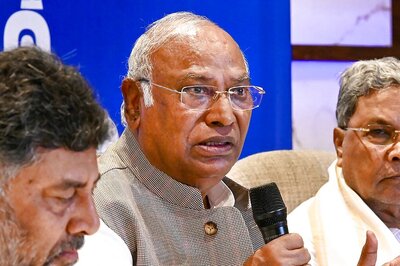
views
Negative Chinese perceptions of India took hold during the British colonial period and currently China is increasingly assessing India through the prism of its worsening relations with the US, former foreign secretary Shyam Saran said on Wednesday. The negative attitudes towards India and Indians persist and surface whenever relations start to worsen, Saran said delivering the VP Dutt Memorial Lecture on “India as Teacher by Negative Example: Chinese Perceptions of India During the British Colonial Period and Their Impact on Contemporary India-China Relations”.
“During the more positive phases, these attitudes are masked and the rhetoric harks back to the ancient period of civilisational engagement between the two countries. Though even in this case, the spread of Buddhism in China from India was regarded at least by some intellectuals as a baneful external influence which must be thoroughly exorcised to allow the true Chinese spirit to emerge,” Saran said. “We see that a line runs through the negative and derogatory perceptions of India and Indians that took hold during the British colonial period, while India’s past glory as a great civilisation was conceded, in contemporary times it became an example of a failed and fallen country in Chinese perceptions,” he said in his online address.
These impressions were also derived by translations into Chinese or Japanese of writings by British colonial authors who justified British colonial rule as a civilisational mission of redeeming a race which had lost any civilisational attributes it may have once had, Saran said. In dealing with the China challenge, India needs to understand these deeper strands of Chinese perceptions into India and the prism through which the Chinese mind interprets Indian foreign policy behaviour, he said.
“Currently, we find that China is increasingly assessing India through the prism of its fraught and worsening relations with the US,” Saran said. For the Chinese pessimists, the future could relive the past in which India became a platform for an assault on China and hence should be neutralised well in time, he said.
Saran called for more intensive China studies in particular on its history, culture and society and the patterns of thought that are ingrained amongst its people. “This exercise has two advantages: 1. It points the way to slowly but steadily removing the sludge of prejudice which animates much of Chinese behaviour towards India; 2. It opens the way for chipping away at our own uninformed notions about China and the Chinese people thereby making a more productive India-China engagement,” he said. His remarks come at a time when India-China relations are under strain amid a standoff in eastern Ladakh.
The situation in eastern Ladakh deteriorated following at least three attempts by the Chinese military to “intimidate” Indian troops along the northern and southern bank of Pangong lake area between August 29 and September 8 where even shots were fired in the air for the first time at the LAC in 45 years.

















Comments
0 comment